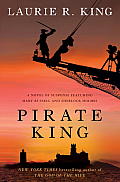 I read Monica Ali's debut novel, Brick Lane, in 2006 (see below). I enjoyed it so I'm not quite sure why it took me almost three years (bookcrossing tells me that I've had Alentejo Blue on my shelf since March 2009) to read Alentejo Blue. I do wish that I enjoyed Alentejo Blue as much as Brick Lane.
I read Monica Ali's debut novel, Brick Lane, in 2006 (see below). I enjoyed it so I'm not quite sure why it took me almost three years (bookcrossing tells me that I've had Alentejo Blue on my shelf since March 2009) to read Alentejo Blue. I do wish that I enjoyed Alentejo Blue as much as Brick Lane.
Alentejo Blue is a novel centered on a rural village in south-central Portugal. Its chapters focus on individuals living in or visiting the village (it opens with an elderly man finding his friend--and sometimes lover--has hanged himself, the second chapter follows a British author who has sex with two inappropriate partners just because it's something to do) making it read, at first like a collection of short stories set in the same place rather than a novel. As the novel progresses, threads begins to tie the various chapters together. While the novel had some moments, I found it bleak. Honestly I finished reading Alentejo Blue out of stubbornness.
Brick Lane by Monica Ali
 Here's what I thought about Brick Lane when I read it in 2006 (from my copy's bookcrossing journal):
Here's what I thought about Brick Lane when I read it in 2006 (from my copy's bookcrossing journal): I can understand why this book was shortlisted for the Booker Prize. I'm amazed, though, that this was the authors debut novel. What an achievement!
Ali explores universal themes on a very personal level. The driving force of the novel, the protagonist, Nazneen, is fully realized and sympathetic.
The novel has a certain weight and urgency, which makes it all the more readable, though it did seem to drag at times.
This is one of my favorite passages:
How had it happened? It was as if she had woken one day to find that she had become a collector, guardian of a great archive of secrets, without the faintest knowledge of how she had got started or how her collection has grown. (313)I also loved the ending.

 Mary Russell, wife and current (1924) assistant to and chronicler of Sherlock Holmes and his adventures, goes undercover at Fflytte Films at the request of Scotland Yard's Chief Inspector Lestrade. The studio's secretary has gone missing, but more significantly, strange coincidences follow the giant of the British film industry whose reputation has been built based on its realism for example, an increase in drug trafficking after a film about a woman and her drug use. Fflytte's current project, "Pirate King is about a film crew that's making a picture--which is also called Pirate King--about The Pirates of Penzance. The picture's director--the fictional director, not Randolph Fflytte--is dissatisfied with the looks of the men in England, so he takes the production to Lisbon to hire some swarthy types, only to have their boat captured by actual pirates" (39). Russell replaces the missing secretary and joins the cast and crew on a boat destined first for Portugal and then Morocco.
Mary Russell, wife and current (1924) assistant to and chronicler of Sherlock Holmes and his adventures, goes undercover at Fflytte Films at the request of Scotland Yard's Chief Inspector Lestrade. The studio's secretary has gone missing, but more significantly, strange coincidences follow the giant of the British film industry whose reputation has been built based on its realism for example, an increase in drug trafficking after a film about a woman and her drug use. Fflytte's current project, "Pirate King is about a film crew that's making a picture--which is also called Pirate King--about The Pirates of Penzance. The picture's director--the fictional director, not Randolph Fflytte--is dissatisfied with the looks of the men in England, so he takes the production to Lisbon to hire some swarthy types, only to have their boat captured by actual pirates" (39). Russell replaces the missing secretary and joins the cast and crew on a boat destined first for Portugal and then Morocco.